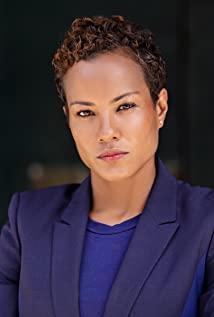“Despite the intensified struggle for control over women’s bodies due to the controversy over the abortion bill, the Me too movement is sweeping the world. However, more women’s issues are still obscured, and the predicament women face as a gender disadvantage always exists. The film, The pain of 1/10,000 is presented in a dramatic way. Back to the real context, there are still many girls living alone in the dark. People have tried hard to cut the tip of the iceberg, in order to let more people continue to pay attention to concurrent Voice."
In the consultation room, Autumn, a girl in a yellow sweater, sat in front of the social worker and answered a series of health and safety questions before the abortion. There are no positive and negative fights, and the picture stays on the girl's face. The questions covered in the questionnaire range from adverse reactions to drugs to whether they are subjected to violent coercion, requiring a choice between "never, rarely, sometimes, always".
This iceberg girl who always has a poker face to outsiders, during the three-minute questioning, those hidden pains that are unknown to others are revealed, her delay, hesitation, embarrassment, pain and sobbing, all the micro expressions, All are presented to the audience without reservation through the camera.
Have you had several partners, whether they were hurt or coerced, whether they went against your will—the emotional experience of a 17-year-old girl, the violence and pain she suffered, are also compressed into a few minimal adverbs.
Halfway through the film, the director revealed the title of the film with a questionnaire, revealing a corner of Autumn's inner trauma like peeling an onion.
The audience also saw Autumn's loneliness and vulnerability for the first time through micro-expressions. The film was shot with a 16mm handheld film camera. The camera always focuses on this young, decadent and indifferent face, refracts the external world from her empty and confused eyes, and thus completes the scheduling and switching of scenes. The narrative of zero-degree emotion reproduces the collision of the hard external world and the soft female body and emotion.
"Never, Rarely, Again, Always" just won the Silver Bear Jury Prize at the 70th Berlin Film Festival, and it won the Sundance Film Festival's Special Jury Prize for the Story Unit, so it is in the circle famous inside. On Rotten Tomatoes, the freshness was as high as 99%, with an average score of 8.66. Among the 70 media participating in the scoring, there were few negative comments, the highest score so far this year.
The plot is very simple, like a glass of white water, but it is as hard as water. The story takes place in a small town in Pennsylvania in the spring, where the snow has not yet melted. Strict abortion laws are enforced here. After discovering that they are pregnant unexpectedly, Autumn and cousin Skylar set off for New York, the most liberal area of abortion laws in the United States.
The two girls took a small amount of money from working in the supermarket, got on the bus, and started a three-day and two-night interstate trip.
Rebellious, independent, and taciturn, Autumn comes from a family of origin that lacks love. Her mother is busy taking care of her young children all day long and neglects her teenage daughter, which also creates a strong personality that is not easy to bully.
After a report performance at school, she splashed a glass of water on the boy who offended her, praised her stepfather in a hypocritical manner, and mercilessly said eat shit. Even to her cousin Skylar, who accompanied her all the way, when she was in a bad mood Will rush out to fuck off.
In her hometown, she went to the clinic alone. After learning of the unexpected pregnancy, she took a lot of medicine and beat her lower abdomen hard.
Facing the mirror, she stabbed her nose with a paper clip and put on a sequined nose ring - this somewhat heart-pounding scene is rather an oath of women's autonomy over their bodies.
What did she experience before the unplanned pregnancy, and who is the father of the child? The suspense and dramatic conflict that are usually found in dramas are not involved in the film. The cause and effect of the story is not the focus of the film. Facing the action itself and the emotional flow in the event, this calm narrative, which is similar to bystander, makes the film more realistic.
The story begins in a small town in Pennsylvania and opens in New York. The most modern and largest city in the United States has achieved the American dream of countless people. The irony is that the two country girls came to New York not to fulfill their dream, but to have an abortion. The criss-crossing traffic system in the center of New York made them unable to find their way for a while. "Being astonished" and "lost" were the first instinctive reactions of "outsiders" facing New York.
On this three-day, two-night trip to New York, the girl carried a bulky large suitcase wherever she went. Before they set off, Skylar stuffed it with unnecessary clothes so much that they had to drag their suitcases down the street in what looked like New York's mockery of small-town youth.
The only warm times were in the arcade and bakery, but Autumn still lost to a rooster in the arcade.
Gender narrative is very meaningful in the film. The blurred male characters in the film exist as a potential threat and unsettling factor.
In the film, the emotional flow of the two girls in this high-pressure incident, their firmness and courage, and their struggle in the predicament, all form a correspondence and intertextuality with the malicious male characters.
The relatively complete male character in the movie is the boy who approached Skylar on the bus. The other party frequently revealed unreasonable thoughts, and Skylar could only compliment them in order to raise money for the two people's return journey. The boy at the station kisses Skylar, and Autumn hides behind a pillar, sniffing Skylar's fingers. The silent companionship and help between the girls is touching.
The exhibitionists encountered in the New York subway, the salty hands of the supermarket supervisor in the small town, the verbal harassment of customers, the provocation and humiliation of classmates and stepfathers... The male gaze, harassment and violation of the underage girls in the film constitute a A ubiquitous potential threat.
The missing male character in the film, the "he" who made Autumn pregnant unexpectedly, although the identity is a mystery, it is not difficult to find out in the dialogue with the social worker that "he" also caused irreversible damage to "her" physically and mentally.
The song "He's Got Power" sung at Autumn's school show probably says it all. Whether out of love or not, this symbolic "he" also uses the absolute power of men to make the girl say things against her will and do things against her will. Although "she" tries to escape, she eventually loses her mind and body. control.
Over the past half century, abortion has gone from a taboo word to a highly controversial social issue. In the context of the passage of anti-abortion bills in several states in the United States, Autumn's story could easily fall into an idea movie. However, the movie "Never" is more like a documentary way to tell the stories of these young girls who are first involved in human affairs, and then to metaphorize the identity and real predicament of the entire female group.
The film's creative team is all women. Director and screenwriter Eliza Hittman won the Sundance Director's Award three years ago for her same-sex film "Beach Rats." Newcomer Sidney Flanigan, who plays Autumn, is a young independent musician who also participated in the music production of the film. Director Hitman and Sidney met by chance seven years ago and were attracted by her music and rebellious temperament, which prompted the two to collaborate.
Female supporting actress Talia Ryder is also only a 17-year-old high school student. Because of her stunning red carpet show at the Berlin Film Festival, the social circle was detonated, and the press photos of the premiere were once popular on Weibo. The social workers of the medical institutions appearing in the film are also played by real practitioners.
In the film, the two girls pass through the block near the hospital, where a large group of Catholics are marching with a statue of the Virgin Mary in protest against abortionists and related medical facilities. The medical facility in the town repeatedly broadcasts the brutal procedure of the operation.
The stigmatized "abortion" seems to be the original sin of women. How embarrassing and innocent is the small-town girl who crossed the continent to New York amid the noise of the anti-abortion march.
The U.S. Supreme Court ruled that the abortion ban was unconstitutional in Roe v. Wade in 1969. The "Savita incident" in Ireland in 2012 led to the passing of a referendum on the legalization of abortion in Ireland six years later.
In April 2019, a South Korean court ruled that the "crime of abortion" clause was unconstitutional, requiring the amendment or repeal by the end of 2020.
Alabama, on the other side of the ocean, passed the strictest "abortion ban" in the United States last year.
It also focuses on the unintended pregnancy of adolescent girls. Compared with the warm comedy of "Juno", where everyone is happy, "Never" is more realistic and stern, facing the problem directly without exaggerating the pain, nor showing excessive differences and despair.
Similar masterpieces include the Romanian film "Three Weeks in April", which won the Palme d'Or at the 60th Cannes Film Festival and the Best Picture at the 20th European Film Awards. Desperately rough and heavy, "Never" still reveals a touch of warmth from a female director in the narrative of lost youth and zero-degree emotion.
In the film, Autumn's clinic in Manhattan is still treated gently by doctors and social workers, and she is accompanied and cared for by her cousin along the way. The ending of the whole story still shines with hope. "Never" may not be a desperate story, but we still can't ignore the inner suffering and struggle of girls.
While the controversy over abortion laws and the battle for control of women's bodies has intensified, the Me too movement is also taking the world by storm. But more women's issues are constantly being mentioned and obscured. The predicaments that women face at various stages because of their gender disadvantage, the different forms of violence and abuse they suffer, are still being staged, and the ubiquitous dangers lurking in daily life still exist.
Returning to the context of reality, the Li Xingxing case, which once attracted widespread attention in the society, and the personal experience written by writer Lin Yihan in "Fang Siqi's First Love Paradise", in addition to these distressing infringement cases that have been exposed, there are also Many girls live alone in the dark. They are undoubtedly aphasic and never understood, they "never expect, rarely resist, sometimes cry, always silent."
We have seen too many girls in desperate situations in "Su Yuan", "Carnival", "Letterhead Stories", "Unbelievable", "Beauty and the Hound", and "The Game That Can't Be Said", and most of the stories are adapted from real events.
The film and television show the pain of one in ten thousand in a dramatic way. People are digging the tip of the iceberg with all their might, so that more people will continue to pay attention and speak out, and promote the process of judicial improvement and justice.
It is shameful to ignore and forget.
Judgment, has been late, but should never be absent.
To borrow a sentence from the Korean movie "The Furnace", "We fought all the way, not to change the world, but to prevent the world from changing us."
For any form of reproduction, please contact the author for authorization. Welcome to follow the author's WeChat public account "Biprism"
View more about Never Rarely Sometimes Always reviews











